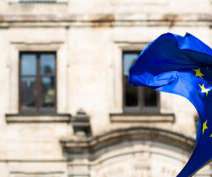Protection of Nonfungible Tokens in Indonesia
IP and Legal Filings
OCTOBER 28, 2022
As of this writing, there is no explicit regulation governing the NFT market or the way NFTs should be produced, acquired, gathered, coined, etc. 5 of 2020, dated November 16, 2020, regarding ESP in the Private Sector, as amended by MOCI Regulation No. Provisions of intellectual property law will be applicable to NFTs.













Let's personalize your content